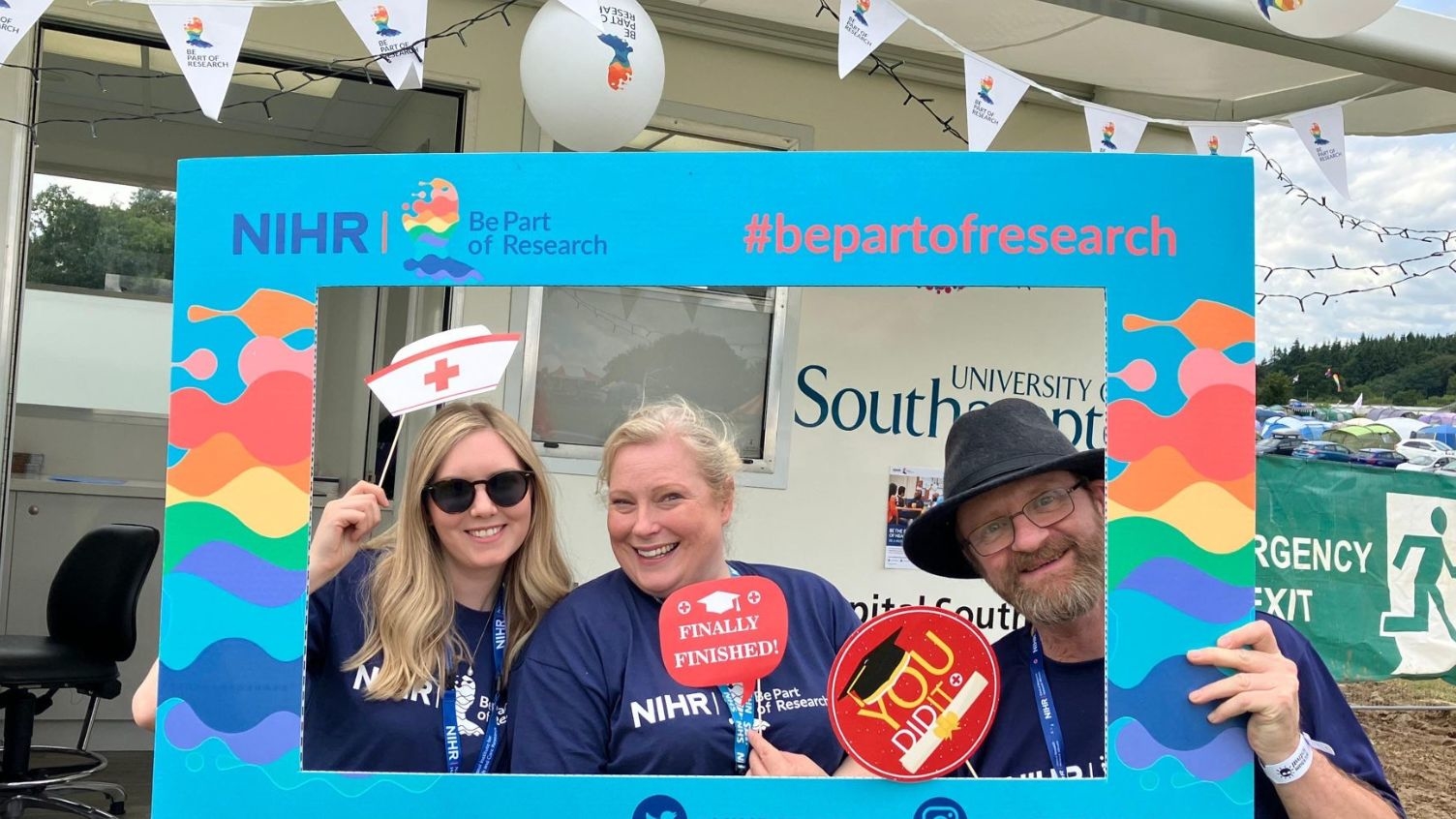Eastern patient finds a better balance after taking part in research
- 14 January 2020
- 3 min read
An NHS Coder from Suffolk is urging people to take part in health research after benefiting from the new treatment for a debilitating condition that affects her hearing and balance.
Eastern patient finds a better balance after taking part in research
Jane Macaulay, 55, who is an NHS coder from Suffolk, has suffered from Ménière's disease for four years. 6 months ago, Jane took part in a life-changing clinical trial at Cambridge University Hospitals NHS Foundation Trust (CUH) and has seen a huge improvement in symptoms ever since. She is now urging people to take part in health research after benefiting from the new treatment for the debilitating condition that affects hearing and balance.
Ménière's disease is a rare disorder affecting the inner ear, which can often cause crippling vertigo (loss of balance), tinnitus, and hearing loss. Attacks can last for several hours and current treatments are only partially effective. Before taking part in the study Jane was experiencing two to three of these attacks a week.
Jane said, "The vertigo just suddenly comes on and it's as if the whole room is spinning and you can't stand up. You have to find somewhere to lie down, although everything is still spinning."
Often happening without warning, the attacks meant Jane was forced to give up driving and work from home. The extreme sensitivity to noise that accompanies the condition stopped her going out with friends and even visiting the supermarket.
She said, "It's like I'm wearing a tin helmet and somebody is hitting something hard against it. I would walk around thinking, shush, why are you banging those shelves?!"
Although Jane had been taking the standard medication to treat the disorder, she was still experiencing regular attacks when she was told about the OTO-104 trial at CUH, and decided to sign up. The study involves injecting a new gel treatment into the inner ear of the patient, with the aim of reducing the regularity of attacks.
For Jane, the trial appears to have been a success with only two attacks suffered since having the injection six months ago. As a result, Jane wants to encourage others to take part in studies, stressing that it can benefit both the patients and the wider public,
She said, "How can new treatments and medications be developed without research? Whether it benefits you or not, it is a great opportunity to develop such an important field".
Jane also praised the research team at CUH, led by Consultant Neurotologist and Skull Base Surgeon, Mr Neil Donnelly, for their understanding and flexibility in making appointments.
As well as keeping her well informed, "Everything was so clear, and I knew exactly what was happening at each stage, the nurses and consultants were so approachable and always there to answer my questions".
The OTO-104 trial is funded by biopharmaceutical company, Otonomy, and is supported by the National Institute for Health Research (NIHR) which provides additional funding for staff and facilities.
Helen Macdonald, Chief Operating Officer for the NIHR's Clinical Research Network in the Eastern region said, "It's wonderful to see someone benefit from research as it demonstrates the impact NIHR studies can have on people's lives. Volunteers are vital to the success of NHS clinical studies happening in the region and beyond, so we cannot thank them enough for their participation".
You can find out about research taking place across the NHS on the NIHR's Be Part of Research website at www.bepartofresearch.uk.


